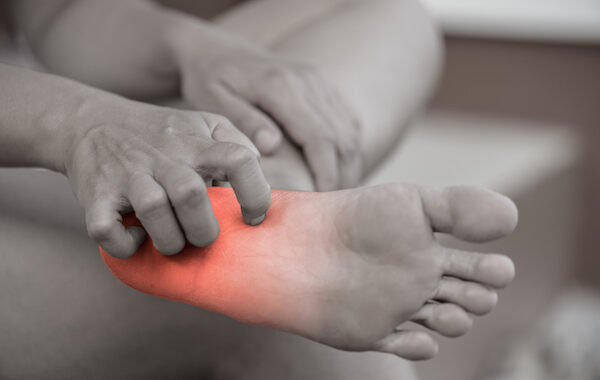Neuropathy is a medical condition that adversely affects the nervous system. The nervous system comprises the brain and spinal cord, which control all body functions, including movement, thought, and sensation. Neuropathy can cause problems with any of these functions.
There are many different types of neuropathy, each with its own set of symptoms.
What Are Neuropathy Symptoms?
Some common neuropathy symptoms include pain, numbness, tingling, and weakness. In addition, neuropathy may involve several different things, including diabetes, cancer, medications, injuries, and infections. As a result, it is often hard to determine the exact cause of neuropathy.
Don’t Ignore Tingling Sensations
Most people notice neuropathy develops first in their hands and feet. Some will attempt to ignore the symptoms, figuring it’s only a temporary problem. However, that’s not the best solution.
Neuropathy is a relatively common condition. In the United States, estimates say over 20 million people have some form of neuropathy. Neuropathy can occur at any age, but it is more common in older adults.
Find Relief For The Symptoms
Neuropathy treatment often focuses on relieving the symptoms. Pain medications, antidepressants, and anti-seizure medications commonly treat neuropathy. Physical therapy and acupuncture may also be helpful. In some cases, surgery may be necessary to relieve pressure on the nerves.
Diabetic Neuropathy
Diabetic neuropathy is extensive nerve damage that often occurs in people with diabetes. Diabetic neuropathy can cause pain, numbness, and tingling in the feet, legs, and hands. In addition, it can contribute to problems with the digestive system, heart, and sexual organs.
Peripheral Neuropathy
Peripheral neuropathy is nerve damage outside the brain and spinal cord. Peripheral neuropathy can cause pain, numbness, and tingling in the feet, legs, hands, and arms.
Postherpetic Neuralgia
Postherpetic neuralgia is nerve damage that occurs after a person has shingles. Shingles are a viral infection that causes a painful rash. Postherpetic neuralgia can cause pain, numbness, and tingling in the rash area.
Why Foot Care Matters For Neuropathy
Never underestimate the importance of proper foot care if you have neuropathy. Because neuropathy can cause numbness and loss of sensation in your feet, it’s easy to injure them without realizing it. That’s why it’s essential to check your feet regularly for cuts, scrapes, blisters, or other problems. Wearing shoes that fit correctly and don’t rub or pinch your feet can also help prevent injuries.
Neuropathy Complications
If neuropathy goes untreated, it can lead to severe complications, including:
- Ulcers And Infections – Neuropathy can cause loss of sensation in your feet. As a result, cuts, scrapes, or blisters on your foot could go unnoticed, leading to an ulcer or infection.
- Falls – Neuropathy can cause problems with balance and coordination. As a result, you may be at risk for falls.
- Amputation – In severe cases, neuropathy may lead to amputation.
How Is Neuropathy Diagnosed?
If you have symptoms of neuropathy, see your doctor. They will ask about your medical history and perform a physical exam. Your doctor may also order tests to get a comprehensive overview of your condition. Additionally, they may refer you to a specialist for further evaluation based on the findings.

